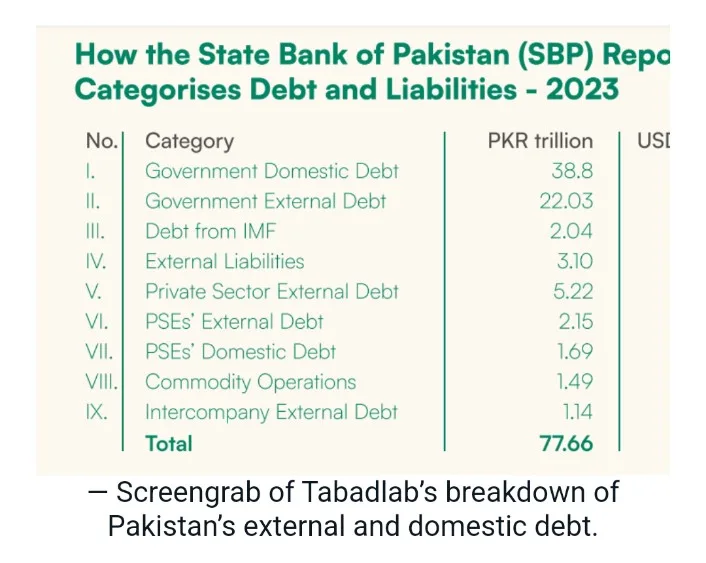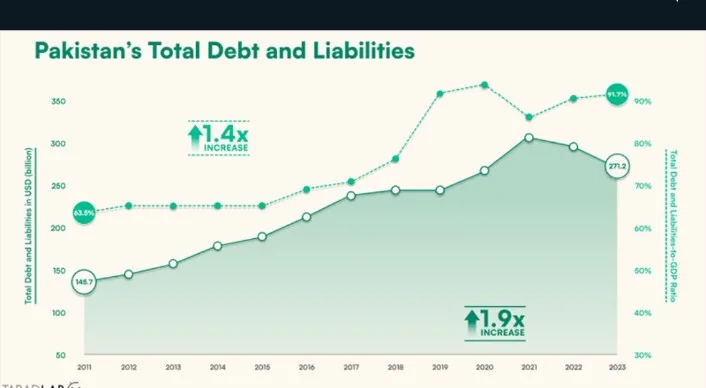A report by Islamabad-based think tank Tabadlab has stated that Pakistan’s debt profile is “alarming” while the country’s borrowing and spending habits were “unsustainable”.
The 68-page report, titled ‘A raging fire: Pakistan’s debt crisis’, was released on Sunday. It said that the country’s total debt and liabilities — including domestic and external debt — to be at Pakistani Rs77.66 trillion, or $271.2 billion.
The report said that Pakistan’s external debt was primarily borrowed from a range of creditors: Paris club (6.3 per cent), multilaterals (30.1pc), other bilateral (19.1pc), commercial banks and T-bills (4.9pc), Eurobonds (6.3pc), the International Monetary Fund (5.7pc), banks (5.1pc) and private sector liabilities (12.7pc).
It noted that Pakistan’s debt per capita had also grown from $823 in 2011 to $1,122 in 2023, a 36pc increase in 12 years. At the same time, the country’s gross domestic product (GDP) per capita had declined from $1,295 in 2011 to $1,223 in 2023, a 6pc decrease. It stated that this meant that the country’s debt was growing “at a much larger pace than its income, widening financing gaps [and] necessitating further borrowing”.
The report said that since 2011, Pakistan’s external debt had nearly doubled while the domestic debt had increased by six-fold, of which the country would need to pay back an estimated $49.5bn in debt maturities — 30pc of it being interest.
“Debt accumulation has been overwhelmingly used to continue fostering a consumption-focused, import-addicted economy, without investment in productive sectors or industry,” the report said.
It said that this raised alarm bells over the country’s debt profile, and its borrowing and spending habits termed “unsustainable”.
It noted the increasing demands of a growing population — such as social protection, education and health — and climate change related disasters which needed “adaptation strategies and a transition to green energy”.
“Pakistan’s climate and debt vulnerability exacerbate one another,” the report said, adding that this made the country vulnerable to macroeconomic volatility and heavily reliant on external programmes which exacerbated the debt cycle.
Domestically, the report said that it had significant repercussions such as political and social upheaval, reduced spending on social services and the loss of the government’s autonomy over policy-making.
The report outlined seven ways to mitigate the growing crisis, such as de-risking the business environment, implementing fiscal discipline and effective expenditure management, increasing foreign currency inflows for capital development through creation of special funds and partnerships to bring in capital for important projects, making internal recalibrations by management of state-owned entities and expansion of the public-private partnership ecosystem, expanding the direct tax net, establishing an export-oriented industrial policy and rethinking climate finance through leveraging debt-for-nature swaps.







